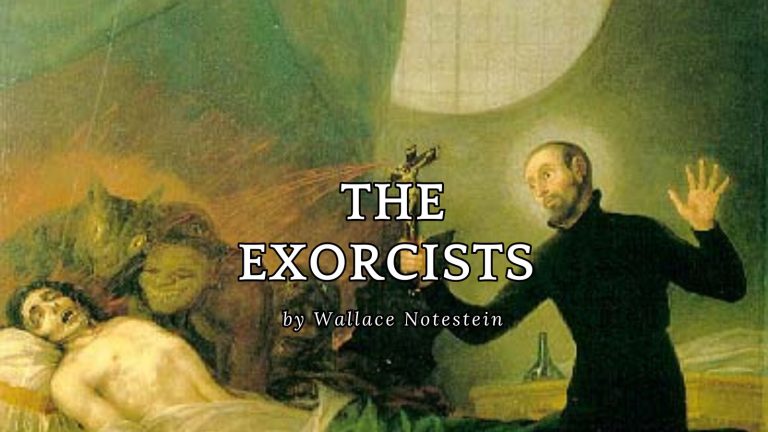Sir,
 —Among men of Genius, and especially among Poets, there are some to whom we turn with a peculiar and unfeigned affection; there are others whom we admire rather than love. By some we are won with our will, by others conquered against our desire. It has been your peculiar fortune to capture the hearts of a whole people—a people not usually prone to praise, but devoted with a personal and patriotic loyalty to you and to your reputation. In you every Scot who is a Scot sees, admires, and compliments Himself, his ideal self—independent, fond of whisky, fonder of the lassies; you are the true representative of him and of his nation. Next year will be the hundredth since the press of Kilmarnock brought to light its solitary masterpiece, your Poems; and next year, therefore, methinks, the revenue will receive a welcome accession from the abundance of whisky drunk in your honour. It is a cruel thing for any of your countrymen to feel that, where all the rest love, he can only admire; where all the rest are idolators, he may not bend the knee; but stands apart and beats upon his breast, observing, not adoring—a critic. Yet to some of us—petty souls, perhaps, and envious—that loud indiscriminating praise of ‘Robbie Burns’ (for so they style you in their Change-house familiarity) has long been ungrateful; and, among the treasures of your songs, we venture to select and even to reject. So it must be! We cannot all love Haggis, nor ‘painch, tripe, and thairm,’ and all those rural dainties which you celebrate as ‘warm-reekin, rich!’ ‘Rather too rich,’ as the Young Lady said on an occasion recorded by Sam Weller.
—Among men of Genius, and especially among Poets, there are some to whom we turn with a peculiar and unfeigned affection; there are others whom we admire rather than love. By some we are won with our will, by others conquered against our desire. It has been your peculiar fortune to capture the hearts of a whole people—a people not usually prone to praise, but devoted with a personal and patriotic loyalty to you and to your reputation. In you every Scot who is a Scot sees, admires, and compliments Himself, his ideal self—independent, fond of whisky, fonder of the lassies; you are the true representative of him and of his nation. Next year will be the hundredth since the press of Kilmarnock brought to light its solitary masterpiece, your Poems; and next year, therefore, methinks, the revenue will receive a welcome accession from the abundance of whisky drunk in your honour. It is a cruel thing for any of your countrymen to feel that, where all the rest love, he can only admire; where all the rest are idolators, he may not bend the knee; but stands apart and beats upon his breast, observing, not adoring—a critic. Yet to some of us—petty souls, perhaps, and envious—that loud indiscriminating praise of ‘Robbie Burns’ (for so they style you in their Change-house familiarity) has long been ungrateful; and, among the treasures of your songs, we venture to select and even to reject. So it must be! We cannot all love Haggis, nor ‘painch, tripe, and thairm,’ and all those rural dainties which you celebrate as ‘warm-reekin, rich!’ ‘Rather too rich,’ as the Young Lady said on an occasion recorded by Sam Weller.
Auld Scotland wants nae skinking ware
That jaups in luggies;
But, if ye wish her gratefu’ prayer,
Gie her a Haggis!
You have given her a Haggis, with a vengeance, and her ‘gratefu’ prayer’ is
yours for ever. But if even an eternity of partridge may pall on the
epicure, so of Haggis too, as of all earthly delights, cometh satiety at
last. And yet what a glorious Haggis it is—the more emphatically rustic
and even Fescennine part of your verse! We have had many a rural bard
since Theocritus ‘watched the visionary flocks,’ but you are the only
one of them all who has spoken the sincere Doric. Yours is the talk of
the byre and the plough-tail; yours is that large utterance of the early
hinds. Even Theocritus minces matters, save where Lacon and Comatas
quite outdo the swains of Ayrshire. ‘But thee, Theocritus, wha matches?’
you ask, and yourself out-match him in this wide rude region, trodden
only by the rural Muse.
‘Thy rural loves are nature’s sel’;’ and the wooer of Jean Armour speaks more like a true shepherd than the elegant Daphnis of the ‘Oaristys.’
Indeed it is with this that moral critics of your life reproach you, forgetting, perhaps, that in your amours you were but as other Scotch ploughmen and shepherds of the past and present. Ettrick may still, with Afghanistan, offer matter for idylls, as Mr. Carlyle (your antithesis, and the complement of the Scotch character) supposed; but the morals of Ettrick are those of rural Sicily in old days, or of Mossgiel in your days. Over these matters the Kirk, with all her power, and the Free Kirk too, have had absolutely no influence whatever. To leave so delicate a topic, you were but as other swains, or, as ‘that Birkie ca’d a lord,’ Lord Byron; only you combined (in certain of your letters) a libertine theory with your practice; you poured out in song your audacious raptures, your half-hearted repentance, your shame and your scorn. You spoke the truth about rural lives and loves. We may like it or dislike it; but we cannot deny the verity.
Was it not as unhappy a thing, Sir, for you, as it was fortunate for Letters and for Scotland, that you were born at the meeting of two ages and of two worlds—precisely in the moment when bookish literature was beginning to reach the people, and when Society was first learning to admit the low-born to her Minor Mysteries? Before you how many singers not less truly poets than yourself—though less versatile not less passionate, though less sensuous not less simple—had been born and had died in poor men’s cottages! There abides not even the shadow of a name of the old Scotch song-smiths, of the old ballad-makers. The authors of ‘Clerk Saunders,’ of ‘The Wife of Usher’s Well,’ of ‘Fair Annie,’ and ‘Sir Patrick Spens,’ and ‘The Bonny Hind,’ are as unknown to us as Homer, whom in their directness and force they resemble. They never, perhaps, gave their poems to writing; certainly they never gave them to the press. On the lips and in the hearts of the people they have their lives; and the singers, after a life obscure and untroubled by society or by fame, are forgotten. ‘The Iniquity of Oblivion blindly scattereth his Poppy.’
Had you been born some years earlier you would have been even as these unnamed Immortals, leaving great verses to a little clan—verses retained only by Memory. You would have been but the minstrel of your native valley: the wider world would not have known you, nor you the world. Great thoughts of independence and revolt would never have burned in you; indignation would not have vexed you. Society would not have given and denied her caresses. You would have been happy. Your songs would have lingered in all ‘the circle of the summer hills;’ and your scorn, your satire, your narrative verse, would have been unwritten or unknown. To the world what a loss! and what a gain to you! We should have possessed but a few of your lyrics, as
When o’er the hill the eastern star
Tells bughtin-time is near, my jo;
And owsen frae the furrowed field,
Return sae dowf and wearie O!
How noble that is, how natural, how unconsciously Greek! You found, oddly, in good Mrs. Barbauld, the merits of the Tenth Muse:
In thy sweet sang, Barbauld, survives
Even Sappho’s flame!
But how unconsciously you remind us both of Sappho and of Homer in these strains about the Evening Star and the hour when the Day metenisseto boulytoide?* Had you lived and died the pastoral poet of some silent glen, such lyrics could not but have survived; free, too, of all that in your songs reminds us of the Poet’s Corner in the ‘Kirkcudbright Advertiser.’ We should not have read how
Phoebus, gilding the brow o’ morning,
Banishes ilk darksome shade!
Still we might keep a love-poem unexcelled by Catullus,
Had we never loved sae kindly,
Had we never loved sae blindly,
Never met—or never parted,
We had ne’er been broken-hearted.
But the letters to Clarinda would have been unwritten, and the thrush would have been untaught in ‘the style of the Bird of Paradise.’
*Transliterated from Greek.
A quiet life of song, fallentis semita vitae’, was not to be yours. Fate otherwise decreed it. The touch of a lettered society, the strife with the Kirk, discontent with the State, poverty and pride, neglect and success, were needed to make your Genius what it was, and to endow the world with ‘Tam o’ Shanter,’ the ‘Jolly Beggars,’ and ‘Holy Willie’s Prayer.’ Who can praise them too highly—who admire in them too much the humour, the scorn, the wisdom, the unsurpassed energy and courage? So powerful, so commanding, is the movement of that Beggars’ Chorus, that, methinks, it unconsciously echoed in the brain of our greatest living poet when he conceived the Vision of Sin. You shall judge for yourself. Recall:
Here’s to budgets, bags, and wallets!
Here’s to all the wandering train!
Here’s our ragged bairns and callers!
One and all cry out, Amen!
A fig for those by law protected!
Liberty’s a glorious feast!
Courts for cowards were erected!
Churches built to please the priest!
Then read this: Drink to lofty hopes that cool
Visions of a perfect state:
Drink we, last, the public fool,
Frantic love and frantic hate.
……… Drink to Fortune, drink to Chance,
While we keep a little breath!
Drink to heavy Ignorance
Hob and nob with brother Death!
Is not the movement the same, though the modern speaks a wilder
recklessness?
So in the best company we leave you, who were the life and soul of so much company, good and bad. No poet, since the Psalmist of Israel, ever gave the world more assurance of a man; none lived a life more strenuous, engaged in an eternal conflict of the passions, and by them overcome—’mighty and mightily fallen.’ When we think of you, Byron seems, as Plato would have said, remote by one degree from actual truth, and Musset by a degree more remote than Byron.
- 8 Authors Who Created Literary Masterpieces Keeping Their Day Jobs - March 31, 2025
- Plotter or Pantser? A Writer’s Personality Quiz - March 30, 2025
- 100 Must-Try Mystery Writing Prompts (Solve the Perfect Crime!) - March 22, 2025






